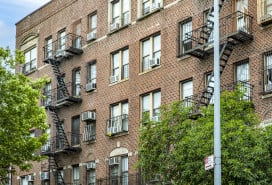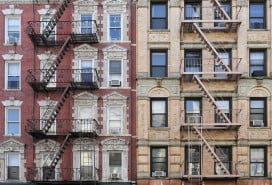Putting down cash for your security deposit? Get a receipt

Moving apartments is an expensive endeavor, especially when it includes the upfront payment of first and last month’s rent, a broker's fee and a security deposit. Fortunately, you can usually count on getting that deposit back, right? Well, yes, if you and your landlord have behaved according to the law.
A reader recently wrote into Gothamist with a complicated story about moving into a place without getting his or her name on the lease, and eventually getting back a measly $167 from the landlord after putting down a cash deposit of $750. What do you do in a situation like this? A brief rundown of your landlord's legal obligations so you can avoid this altogether:
Upon moving in:
• If the building contains six apartments or more, a landlord is supposed to deposit the rent (including the security deposit) in an interest-bearing segregated account and either return the bulk of the interest to you each year or provide you with a statement of accrued interest.
• If you pay the deposit in cash, get a written receipt (a landlord is required by law to issue one).
Upon moving out:
• If you’ve moved out of the apartment on or before the end date of the lease (and made it official by returning the keys), left the place in decent condition (snap a few parting pics as proof) and are up to date on all rental payments, you’re owed the security deposit.
• If a landlord doesn’t return your deposit, plus accrued interest, you can sue for the amount in small claims court (though that comes with its own set of headaches).
Related:
Get back your security deposit
Security deposit self defense: What you need to know
























